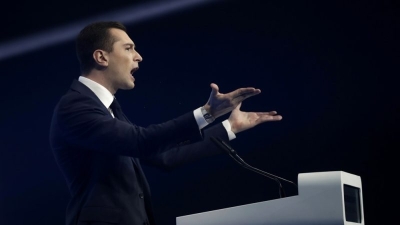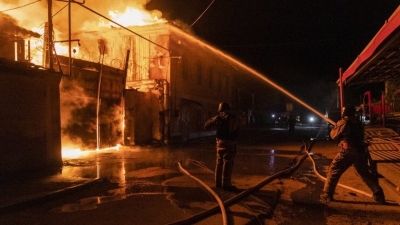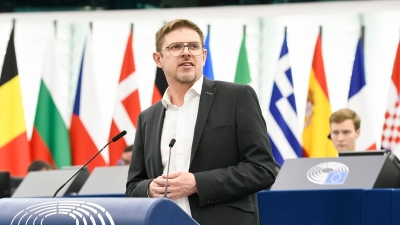Europe’s net-zero industry law will do little for manufacturing ambitions, experts say

The EU’s Net-Zero Industry Act (NZIA) will have little impact on Europe’s target to produce more technologies needed for the energy transition, experts told Euractiv, arguing that a new large-scale initiative was necessary after the EU elections.
The measure – adopted by the European Parliament on Thursday (25 April) with 361 votes in favour, 121 against and 45 abstentions – enshrines the target of producing 40% of domestic needs for so-called ‘net-zero’ technologies in Europe.
The scope of the law was significantly widened during the legislative process, now covering 19 technologies, including solar panels and wind turbines, traditional nuclear fission, CCS, biotech, and electricity grid technologies.
However, Simone Tagliapietra, a senior fellow at think-tank Bruegel, told Euractiv that the EU lacks the instruments to ensure that these targets can be met, calling the NZIA objectives “paper tigers.”
Despite introducing provisions to set out deadlines for permitting procedures related to new manufacturing sites for green technologies and new rules for public procurement and subsidy schemes, the legislation itself “doesn’t change anything”, he added.
Permitting no ‘key bottleneck’ for manufacturing
His view is shared by Nils Redeker, deputy director of the Berlin-based Jacques Delors Centre, who said that the duration of permitting procedures is “not decisive” for whether investments into new manufacturing sites would happen within Europe or elsewhere.
The new law requires member states to ensure that permitting procedures for new factories or the expansion of existing ones should last 12 months for small-scale projects (production sites with a yearly manufacturing capacity of 1 GW) and 18 months for large-scale factories.
However, while lengthy permitting procedures would be problematic for setting up renewable energy manufacturing sites, they would not be the “key bottleneck,” Redeker said.
New ‘resilience’ criteria can be ignored if too costly
Both experts said the new provisions set for public procurement and renewable energy auctions would be more important.
For the first time, the law requires public authorities to use criteria other than price—so-called qualitative—when buying technologies like roof solar panels or heat pumps or when organising auctions for large-scale renewable energy projects such as wind parks or ground-mounted solar parks.
These criteria are based on a “sustainability and resilience” contribution and are meant to give European manufacturers a competitive advantage over foreign producers—particularly those from China. China accounts for around 80% of global solar manufacturing and is expected to quickly catch up on other renewable and low-carbon technology sectors, like wind turbines.
However, the experts fear that given the option for EU countries to disregard the new criteria in case they lead to “disproportionate” additional costs—set at 20% for public procurement and 15% for renewable energy auctions—they could, in practice, and will most likely, be ignored.
“If you look at the price differentials between European and Chinese solar panels at the moment, then there will be a very large price difference,” Redeker said.
Production costs for solar panels are 35% cheaper in China than in Europe, according to a report by the Commission’s Joint Research Centre. Chinese companies are also suspected of selling solar panels below production costs due to overproduction in their manufacturing sector.
In effect, member states could “decide for themselves” whether or not to apply the new criteria, Redeker said – which would mean that little would change compared to the current pre-NZIA context, where they can already voluntarily apply qualitative criteria.
In Tagliapietra’s view, the only criterion that could make a difference entails a “pre-qualification” on cybersecurity, which EU countries could use to block market access for Chinese manufacturers of wind turbines and other technologies requiring digital connection to enter the European market.
However, the specifics of this still have to be defined by an “implementing act” by the European Commission, expected to be presented within the next nine months.
Read more with Euractiv




